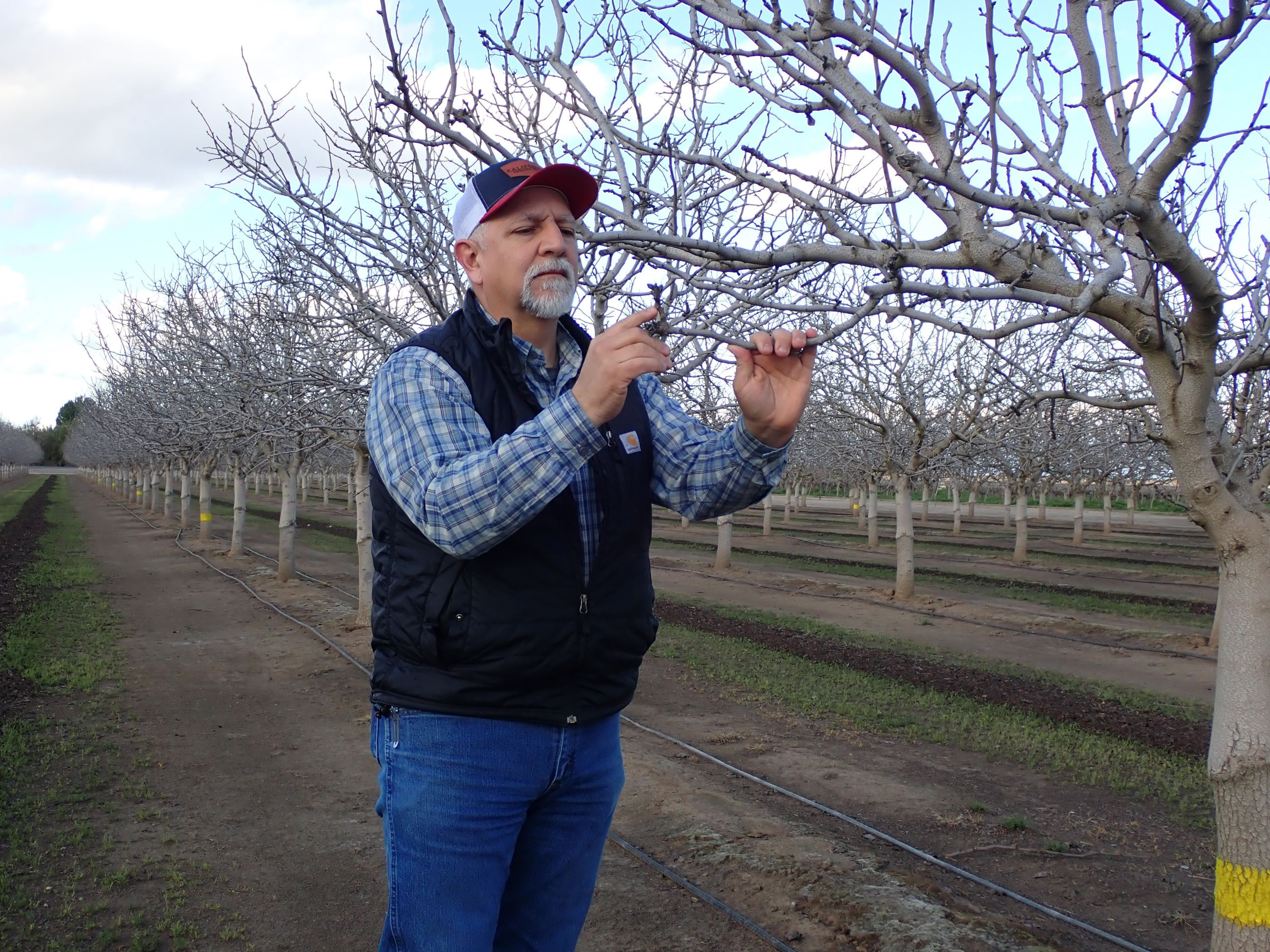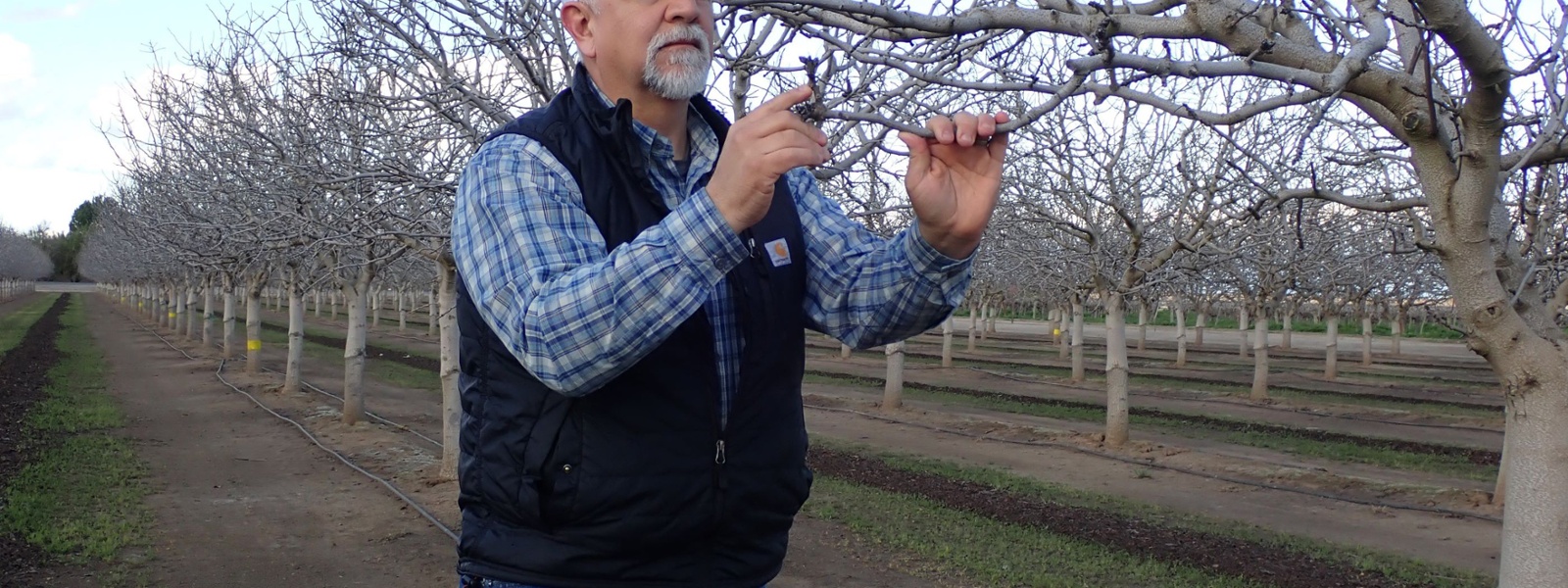CCA Today: CCAs are important to Western agriculture

Stephen Vasquez inspects pistachio growth.
Photo/Courtesy of California Pistachio Research Board

By Stephen Vasquez
California and Arizona are home to the largest contingent of Certified Crop Advisers, or CCAs, in the United States, boasting 1,400 CCAs. CCAs are critical for growers looking to optimize their production. CCAs offer expertise across the 400-plus crops grown in the Western Region. Their profound knowledge stems from academic and governmental research, coupled with extensive field experience in specific crops like pistachios.
Apart from advising on fertilizers, CCAs excel in areas like crop varieties, rootstocks, climate suitability, interpreting lab findings and diagnosing plant anomalies. This comprehensive skill set not only benefits growers but streamlines their operations, ultimately saving them time and money.
Becoming a Certified Crop Adviser requires dedication, involving the successful completion of two exams. The first—the local Western Region exam—covers local agricultural challenges, while the second evaluates candidates’ expertise in various agronomic aspects such as soil science, water management and plant nutrition on an international scale.
CCAs must uphold their certification status by obtaining continuing education units, or CEUs. Units are earned by actively participating in meetings and seminars that cover six essential areas in their field:
• Nutrient Management.
• Soil and Water Conservation.
• Integrated Pest Management, or IPM.
• Crop Management.
• Professional Development.
• Precision Agriculture.
Continual learning and engagement in these specialized areas enriches the expertise of CCAs and ensures proficiency and relevance in the ever-evolving landscape of agronomy.
CCAs play a crucial role in agriculture, particularly in addressing nitrogen pollution. They can opt for a specialty in Nitrogen Management, reflecting the state’s emphasis on mitigating nitrogen-related issues. To attain this specialty certification, CCAs undergo an additional test.
The CCA program, under supervision of the American Society of Agronomy, has been operational in the Western Region since 1994, supported by the California Department of Food and Agriculture. The significance of nitrate contamination in groundwater and drinking water was underscored in a 2012 University of California, Davis, report, leading to a notable rise in certifications. CCAs emerged as essential assets for growers, aiding in enhancing nitrogen practices and curbing nitrate movement to aquifers.
As growers navigate the evolving landscape of Western agriculture, numerous challenges loom, influencing their financial stability. Interconnected issues such as climate variability, water quality and plant health pose significant hurdles—all areas where CCAs excel in offering solutions. By meeting CEU requirements, CCAs engage directly with researchers developing cutting-edge strategies to enhance farm productivity. Serving as on-farm advisers, CCAs bridge the gap between research and implementation, conveying real-time feedback from farmers they assist. These dedicated professionals serve as invaluable allies, aiding in informed decision making to safeguard both farmers’ economic interests and environmental sustainability.
Growers who haven’t yet partnered with a CCA can contact their local fertilizer retailer or the Western Region Certified Crop Adviser website. Their science-backed strategies coupled with years of experience managing specialty crops grown in California and Arizona benefit a farmer’s bottom line. Optimizing your crop production is only a phone call away.
Stephen Vasquez is Chairman of the Western Region Certified Crop Advisers, Executive Director of the Administrative Committee for Pistachios and a Tulare County Farm Bureau member. He may be reached at info@wrcca.org.




